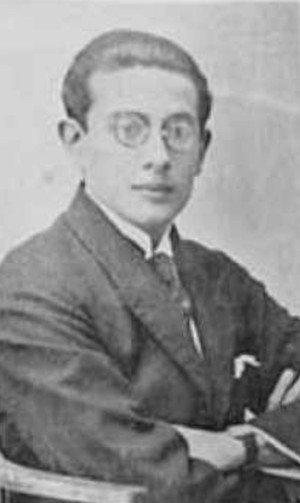César Molina Martínez (Cañar, 1965) is an Ecuadorian poet and public servant currently residing in Chicago. He holds a degree in Political Science from the University of Cuenca and has served in various public roles, including as a councilman for the Municipality of Cuenca. His poetry, often exploring themes of exile, migration, and identity, has earned significant recognition, including the Premio Nacional de Poesía Jorge Carrera Andrade for Catholic Splendor (2000) and the Premio Nacional de Poesía César Dávila Andrade for Código de extranjería (2007). Molina Martínez’s work, known for its narrative intensity and biblical references, reflects his experiences living between Ecuador and the United States.
Early Life and Education
César Molina Martínez was born in 1965 in Cañar, Ecuador. He pursued higher education at the University of Cuenca, where he earned a degree in Political Science. His academic background later complemented his career in both public service and literature.
Professional and Political Career
Before fully dedicating himself to poetry, Molina Martínez had an active career in public service in Ecuador. He held several important positions, including Administrative Director of the Regional Center for Agricultural Research (CREA), Director of ETAPA (a municipal utility company in Cuenca), and Manager of Cuenca’s Terrestrial Terminals Enterprise. Additionally, he served as a Councilman for the Municipality of Cuenca. His work in these roles contributed to his understanding of Ecuadorian society and governance, themes that would later influence his literary output.
Move to Chicago and Literary Career
In 1999, Molina Martínez relocated to Chicago, where he has since resided. This move significantly impacted his writing, as themes of exile, migration, and cultural displacement became central to his work. His poetry reflects the complexities of living between two worlds—his native Ecuador and his adopted home in the United States.
Molina Martínez’s first major collection of poems, Catholic Splendor, was published in 2000. This collection won the prestigious Premio Nacional de Poesía Jorge Carrera Andrade from the Municipality of Quito, solidifying his reputation as an important voice in Ecuadorian poetry. His second collection, Código de extranjería (2007), continued to explore themes of identity and displacement. It earned him another national accolade, the Premio Nacional de Poesía César Dávila Andrade, awarded by the Encuentro sobre Literatura Ecuatoriana “Alfonso Carrasco Vintimilla.”
Published Works
- Catholic Splendor (1999/2000) – Molina Martínez’s debut collection of 42 poems, known for its grandiose biblical themes and exploration of the spiritual and the foreigner’s experience. The collection earned him the Premio Jorge Carrera Andrade.
- Código de extranjería (2007) – This 44-page collection earned Molina Martínez the Premio Nacional de Poesía César Dávila Andrade. The work is noted for its introspective, less confrontational tone compared to his first, and explores the existential condition of the foreigner and exile.
- La leña del fuego: Poesía reunida 2000-2009 – Published in 2009, this volume gathers Catholic Splendor, Código de extranjería, and a new set of poems written between 2008 and 2009. In these newer works, themes of nostalgia, migration, and personal displacement continue, reflecting Molina Martínez’s life experiences as an immigrant. The collection was designed to present revised and definitive versions of his previously published works.
Style and Themes
Molina Martínez’s poetry is characterized by its narrative intensity and clear, emotive language. Critics often describe him as a poetic “chronicler” who intertwines personal and universal experiences. His work frequently draws from biblical imagery and themes of exile, reflecting his life journey from Ecuador to the U.S. The Bible and ancient epic tales serve as backdrops for his reflections on modern displacement, lending his work a timeless quality. The recurring motif of migration in his poetry underscores the existential tension between belonging and alienation.
In Catholic Splendor, for example, Molina Martínez crafts a series of poems that evoke the sense of a pilgrimage, with grand biblical references that offer commentary on both personal and collective struggles. In contrast, Código de extranjería offers a more introspective look at the emotional toll of being a foreigner, softened by nostalgia and a longing for connection.
Legacy and Accolades
César Molina Martínez remains a somewhat elusive yet significant figure in Ecuadorian poetry. His relocation to Chicago and the limited distribution of his earlier works have contributed to his reputation as a “clandestine celebrity” within Ecuador’s literary scene. Despite this, his impact on contemporary Ecuadorian poetry is well-recognized, with his works being praised for their emotional depth and intellectual rigor.
Molina Martínez’s contributions to Ecuadorian literature have been acknowledged through two major national poetry awards: the Premio Jorge Carrera Andrade in 1999 and the Premio César Dávila Andrade in 2005. These honors reflect his standing as a leading voice in modern Ecuadorian poetry, particularly in his exploration of migration, identity, and existential longing.
Personal Life
Since 1999, Molina Martínez has lived and worked in Chicago, where his experiences as an immigrant have continued to influence his writing. Although much of his career has been spent outside of Ecuador, his poetry remains deeply connected to his homeland, reflecting both his personal history and broader themes of exile and displacement.
Conclusion
César Molina Martínez’s poetry captures the emotional and intellectual challenges of living between two cultures. With works that explore the spiritual and existential dimensions of migration, he has established himself as a significant voice in Ecuadorian poetry. His contributions continue to resonate with readers, offering insight into the complex experience of displacement and the search for identity.
References
- Goodreads Profile of César Molina Martínez. Source: Goodreads. Retrieval Date: September 30, 2024
- Catholic Splendor on Goodreads. Source: Goodreads. Retrieval Date: September 30, 2024
- Código de Extranjería on Goodreads. Source: Goodreads. Retrieval Date: September 30, 2024
- La leña del fuego on Goodreads. Source: Goodreads. Retrieval Date: September 30, 2024
- Antología de poesía cuencana de cambio de siglo (XX – XXI), by Cristóbal Zapata (Editor). Source: Universidad del Azuay. Retrieval Date: September 30, 2024


